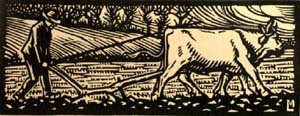

 HROUGHOUT winter the Aleutians are not always hunting the bear and the fox, or surprising the poor seal when he puts his nose out of his hole to breathe; they cannot be always constructing boats and making sledges or snow-shoes. Life would be unendurable if they did not give themselves some little rest. The hovel being poor and miserable, there is all the more reason for being gay. The Esquimaux laughs at everything: laughs at the white man with his hundred tools and his thousand knick-knacks; he laughs while thawing his nose
HROUGHOUT winter the Aleutians are not always hunting the bear and the fox, or surprising the poor seal when he puts his nose out of his hole to breathe; they cannot be always constructing boats and making sledges or snow-shoes. Life would be unendurable if they did not give themselves some little rest. The hovel being poor and miserable, there is all the more reason for being gay. The Esquimaux laughs at everything: laughs at the white man with his hundred tools and his thousand knick-knacks; he laughs while thawing his nose
|
and hands, which are in danger of gangrene; he laughs while letting oil run down his throat, while greasing his skin, and while lubricating his garments within and without; he laughs, and asks nothing but laughter. The Inoits have few pleasures but those of society, and of these they do not deprive themselves. The climate being hostile, the earth a harsh step-mother, they feel the need of keeping close together, of helping one another, of loving one another. "Primitive Folk" |
What the outer world refuses them they ask from the inner. After all, there is for man no better companion than man; it is in consorting with his fellows that he developes his original qualities and his highest faculties. Were it not that the Esquimaux tribes are great families, closely united, were there not communism thorough and deep rooted, their little republics would have speedily perished....
ELIE RECLUS |


 WAS brought up in the cult of the Reclus brothers by my mother, who was their sister. I was named after the elder, to whom she was even more attached than to the other, and with whom she often sent me to stay when I was young. To say that I loved him best of all men is inadequate. I worshipped him; and he had a most decisive influence on my developement. He might not, at first sight, recognize the resemblance to himself of a man who accepts war as a normal biological phenomenon, and who has written an apology for Napoleon. But, at any rate, he would soon find the impress of his mind in the intellectual independence which these ideas necessitate, and also, I believe, in my adherence to the doctrine which makes me regard as a sign of senility every return to theoretical formulas and political forms which have exhausted their virtue by the very fact of having existed. What is more, I know he would forgive me if I have rather interpreted his teaching than learnt it by rote. If it is due to him-as he would understand at once-that I remain, for the time being, a republican in the political sphere, a socialist in the economic sphere, and an anarchist in the sphere of individuality, it is also due to him - as he would not be slow to see - that I am willing to accept any form of society, be it never so hierarchical and authoritarian, if only it exhibits the live and vigorous interplay of essential forces.
WAS brought up in the cult of the Reclus brothers by my mother, who was their sister. I was named after the elder, to whom she was even more attached than to the other, and with whom she often sent me to stay when I was young. To say that I loved him best of all men is inadequate. I worshipped him; and he had a most decisive influence on my developement. He might not, at first sight, recognize the resemblance to himself of a man who accepts war as a normal biological phenomenon, and who has written an apology for Napoleon. But, at any rate, he would soon find the impress of his mind in the intellectual independence which these ideas necessitate, and also, I believe, in my adherence to the doctrine which makes me regard as a sign of senility every return to theoretical formulas and political forms which have exhausted their virtue by the very fact of having existed. What is more, I know he would forgive me if I have rather interpreted his teaching than learnt it by rote. If it is due to him-as he would understand at once-that I remain, for the time being, a republican in the political sphere, a socialist in the economic sphere, and an anarchist in the sphere of individuality, it is also due to him - as he would not be slow to see - that I am willing to accept any form of society, be it never so hierarchical and authoritarian, if only it exhibits the live and vigorous interplay of essential forces.ELIE FAURE